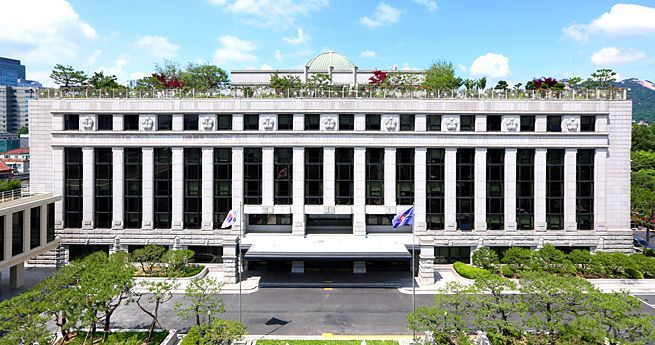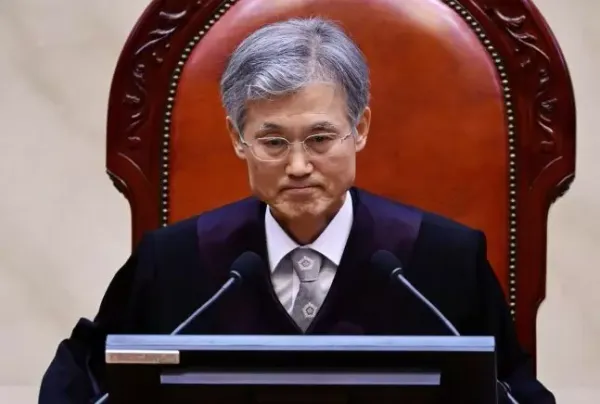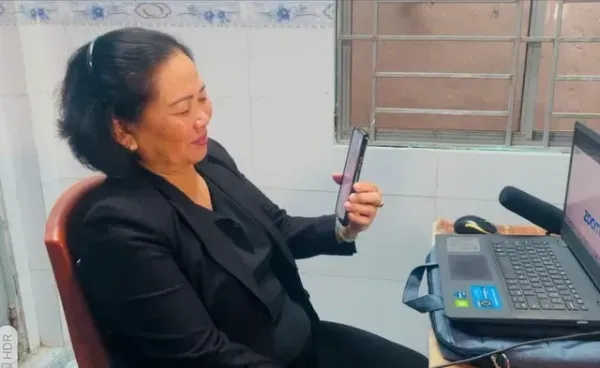Photo: the Constitutional Court of the Republic of Korea. Credit: the Constitutional Court.
The Constitutional Court 헌법재판소 nullified a decision by the Supreme Court 대법원 in a rare clash between the two institutions. Formally, the Constitutional Court is not a part of the judiciary, but a special council atop the three branches of the government (including the judiciary) that only addresses constitutional interpretation.
This is the second time in the history of the Constitutional Court that it has overturned a Supreme Court decision; the first time was in 1997, in which the Constitutional Court overturned the Supreme Court decision that did not follow the Constitutional Court’s determination that the Supreme Court’s interpretation of the tax code was unconstitutional.
The new overruling concerns a petitioner, a civilian member of a public-private committee on disaster readiness assessment for Jeju-do Province 제주도, who was convicted of receiving bribes as a public official and sentenced to four years in prison. The petitioner challenged the conviction with the Constitutional Court, arguing that it was unconstitutional for the judiciary to treat him as a public official.
While the constitutional challenge was pending, the Supreme Court confirmed the conviction. In 2012, the Constitutional Court found that the Supreme Court’s interpretation of the relevant statutes was unconstitutional. When the Supreme Court declined to vacate the petitioner’s criminal conviction in light of the Constitutional Court’s decision, the petitioner again came to the Constitutional Court, which found the Supreme Court’s refusal to vacate the conviction was unconstitutional.
Under the Constitutional Court Act 헌법재판소법, a person may challenge a violation of a fundamental right by a governmental act, unless the government act is a court decision. But the Constitutional Court has maintained that it had jurisdiction over a court decision made pursuant to an unconstitutional interpretation of law, because of its jurisdiction to interpret the constitution. The Supreme Court had long disagreed, arguing that the judiciary has the ultimate authority to interpret the law.








